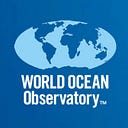The Water Ethics Network
There is no life without water
A charter of recommended principles for water sustainability based on five themes: environmental, economic, social, cultural, and governance
There is no life without water — an obvious declaration, affirmed by the physical presence of water from mountain-top to abyssal plain, by the constitution and health of our bodies, by the irrefutable need for water to sustain every aspect of our being, every strategy for our future. I have spoken often before about a water ethos as a declaration of this essential natural system as the core of any successful social, political, financial, or cultural strategy for sustainability and survival in the 21st century.
There are some efforts in this direction: the World Water Forum, for example, an international association of water interests, modeled after other large associations of global players with a common interest, UN agencies and the like, with annual convenings and reports, policy discussions, and program with best intent. In 2012, as a Forum recommendation, a group of motivated individuals and organizations formed a Water Ethics Steering Committee, comprising representatives of the Alliance for Water Stewardship, Botin Foundation Water Observatory, Center for Water Use Ethics (Egypt), Club of Rome, French Water Academy, Indigenous Environmental Network, UNESCO-IHP, Water-Culture Institute, and Water Youth Network, began to draft a Water Ethics Charter to serve as a statement of principle and mission on which to base further action. Sadly, subsequently, as with so many things “water,” the committee work has waned for lack of funding.
Nonetheless, the draft Charter lays out a structure of five themes: Environmental, Economic, Social, Cultural, and Governance. Here are some paraphrases from each:
- Water ecosystems have inherent rights, and intrinsic value over and above their utilitarian value to people. The resilience of freshwater ecosystems to sustainably support basic ecological functions must be held as a fundamental priority. It is our moral responsibility to adjust human demands for water to accommodate healthy ecological functions.
- We need to transition to a world in which human demands are attuned to what is possible within a healthy environment. We need an environmental ethic, which will safeguard the integrity of water ecosystems in the face of unprecedented human pressures and climate change.
- Water has an inherent economic dimension in all its uses, and economic principles are essential for comparing impacts and benefits from proposed water investments or interventions. Economic thinking is not limited to questions of monetary value, but applies equally in considering tradeoffs and opportunities related to non-economic, social and environmental values.
- Water is intimately connected to society, forming a socio-ecological system that addresses social needs and provides opportunities. Social arrangements are instrumental for both socially just and economically effective water management.
- Water should be explicitly recognized as a central feature of life for individuals and the larger society. Water is a human right, but it also carries individual responsibilities for engaging in water decisions, and collective governmental responsibilities for empowering and legitimating that engagement.
- Water is a common good which belongs to everyone, under the principles of fairness, equity, solidarity, and social justice. Everyone has a right to safe water to meet basic needs. There is a further moral right to a healthy water environment, not only clean water, but ecologically healthy water ecosystems, for purposes of practical, economic, aesthetic and cultural enjoyment.
- Cultural diversity, and the rights of indigenous and traditional peoples to live according to their cultural traditions, is a fundamental right. Cultural traditions related to water include basic economic livelihood strategies such as fishing and religious ceremonies which revolve around water bodies or particular forms of water use. These should be protected, and the rights of local communities to engage in traditional water-related practices should be recognized and honored.
- Water systems are closely integrated socio-ecological systems, and water governance needs to reflect both of these dimensions, by adopting a broad ecological frame to incorporate whole watersheds, aquifers, and interactions between freshwater and marine ecosystems, and reflecting the interests of all stakeholders, with particular emphasis on those groups who have the least political power.
That this work has been thwarted by lack of financial support seems absurd. That this is not the underlying structure for a global initiative to redress the critical collapse of water quality and conservation is a failure of human imagination. If we are to claim ethos for life, then we must immerse ourselves in the exigency of water.
PETER NEILL is founder and director of the World Ocean Observatory, a web-based place of exchange for information and educational services about the health of the world ocean. He is also host of World Ocean Radio, upon which this blog is inspired. World Ocean Radio celebrates 12 years this year, with more than 600 episodes produced to date.
